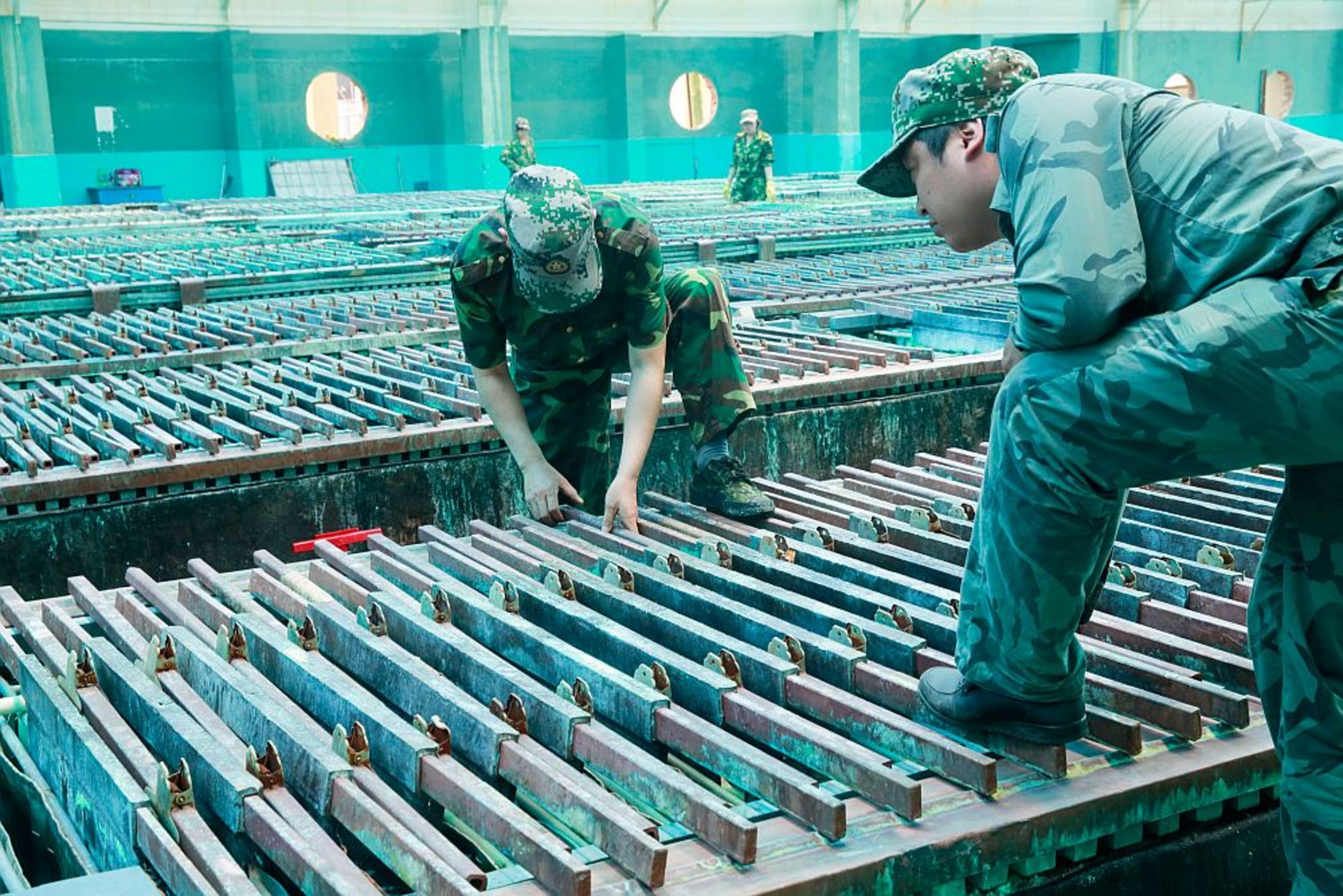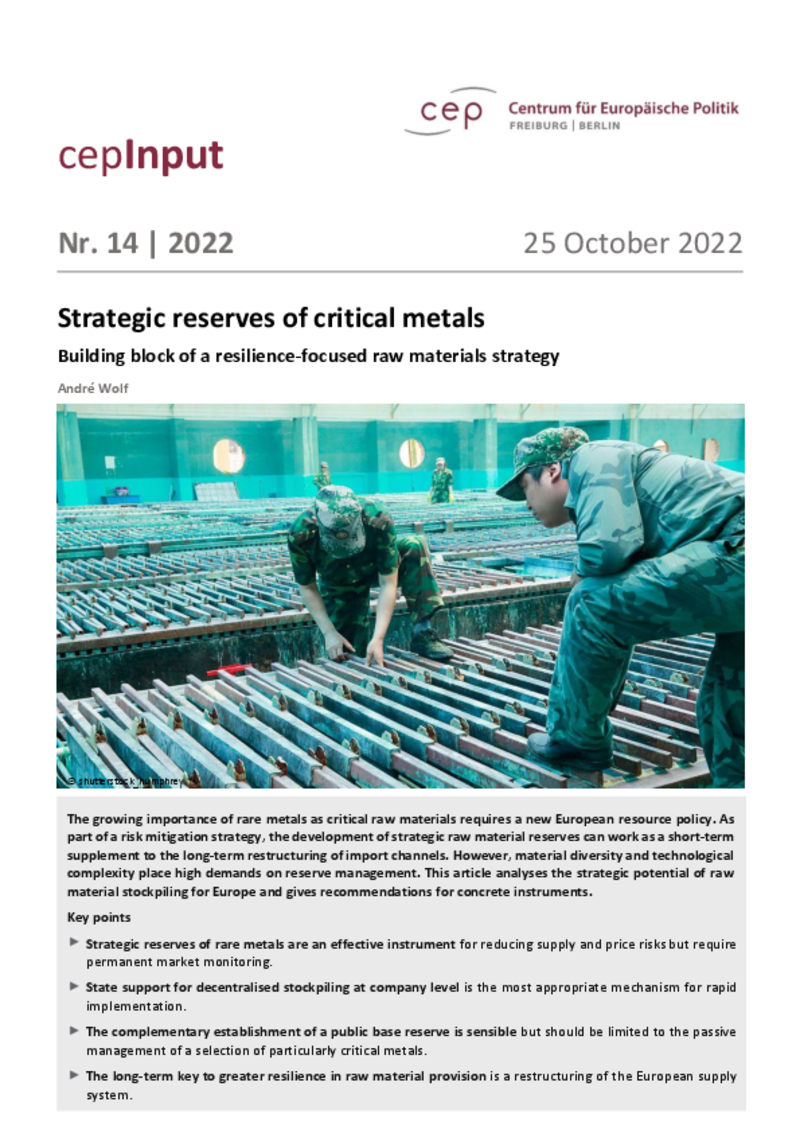
Economic & Fiscal Policy
Strategic reserves of critical metals (cepInput)
cepInput
"Since these measures only take effect in the medium to long term, the targeted build-up of reserves of critical raw materials is a sensible addition," advises cep expert André Wolf, who wrote the study. Stockpiling could serve as a strategic means to dampen prices in the long term. However, this is associated with costs for companies, e.g. operating expenses for building and managing warehouses. It must therefore be decentralised. Wolf also advocates state incentive instruments such as special depreciation on raw material reserves, state guarantees for storage credits or subsidies for purpose-related joint ventures. In addition, state reserves of raw materials would serve as basic security in times of massive supply restrictions. "Reference countries with comparable democratic standards to those in Europe are, for example, Norway, Canada or Australia."
According to Wolf, such basic hedge should be limited to particularly critical raw materials and, if possible, be managed centrally at the European level. "Basically, a further improvement of the information situation is a prerequisite for active risk management in the rare metals segment. The European Union has made considerable progress in this area in recent years," Wolf emphasises.
Download PDF
| Strategic reserves of critical metals (cepInput) (publ. 10.24.2022) | 1 MB | Download | |
 | |||



